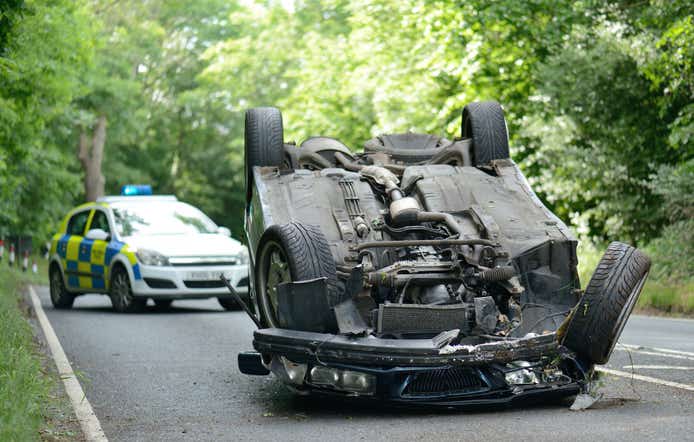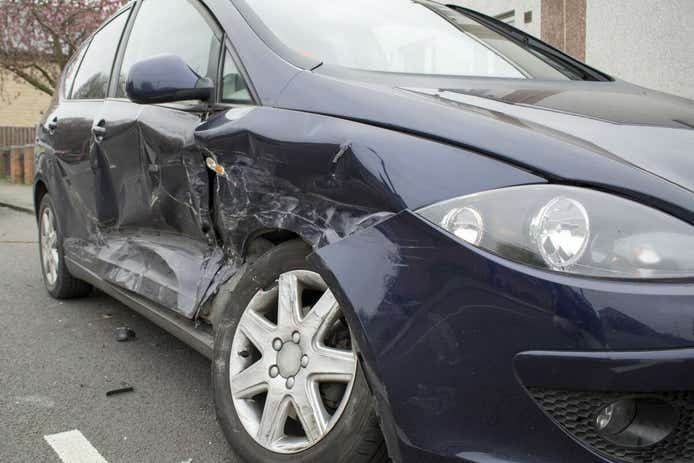What is a claim on car insurance?
A car insurance claim is when you contact your insurer to report an accident, vandalism or the theft of your car – and you want your insurer to help cover the cost.
The compensation you ask for might be to cover the car itself, someone’s injury or personal belongings in the car.
Will a previous claim affect the cost of my car insurance?
Usually, yes. When it comes to car insurance, every claim is unique, but most drivers who’ve made a claim have one thing in common – their car insurance premiums go up.
Claims can range from being very minor, such as for a broken wing mirror or a dented bumper, to very serious, such as for a vehicle being written-off, or serious injuries or fatalities. The cost of any claims will partly determine what happens to the price of your future car insurance premiums.
The deciding factor will be whether you’re deemed to have a "fault” or "no-fault” claim. This means your insurer will consider the circumstances of your claim and determine whether you were to blame. This is not always clear cut - for example, if your car was broken into or vandalised.
For more information on the different types of car insurance claim, read our guides on car insurance for at-fault claims and car insurance for no-fault claims.
Get a car insurance quote
See a range of car insurance quotes in just a few minutes when you compare with Uswitch
How can I check my car insurance claims history?
The easiest way to check your car insurance claims history is to ask your current insurer for any claims you’ve made to date. You could also ask your previous insurer if you switched in the last few years.
You’ll need lodge a ‘subject access request’ if you want more information. This gives you the right to find out what information a company holds on you under data protection law.
In this case, you’d make a request to the Claims and Underwriting Exchange. This is the central database of all motor, home, personal injury and industrial-illness incidents reported by insurers in the UK. Your data is held for six years from the date the claim was closed.
To access this information, head to the Motor Insurers’ Bureau website and complete a subject access request form.
How can I protect my no-claims bonus?
A no-claims bonus gives you a reduction on your insurance premiums if you haven’t made a claim, so normally this discount would disappear in future once you’ve made a claim.
But you can pay to protect your no-claims bonus so that the bonus will remain after you’ve made a claim – even if the incident was your own fault.
This doesn’t mean your insurance premiums won’t go up even if your no-claims bonus remains intact. This is because:
Depending on the insurer, you’ll be asked to state whether you’ve made any claims in the last three to five years
Insurers will calculate your premium based on your risk profile, and any no-claims bonus is applied to that amount.
But your premiums should still be lower than if you didn’t have a no-claims bonus in place.
How long will a claim affect my car insurance for?
How long a previous claim impacts your cover will depend on the insurer.
Most insurers will ask about any claims and accidents you've had over a set number of years, and not be interested in any claims made before this time.
Typically, insurers will ask about the last five years, but some car insurance companies ask about the last three years, which could be worth searching for when you come to renew.
Remember, it’s crucial to be honest about any previous claims. If you’re not and your insurer later finds out, your policy could be invalidated and any future claims rejected.
How can I save money on car insurance if I have made previous claims?
There are several steps that can be taken to reduce the cost of car insurance for drivers who have made claims. These include:
Raising your voluntary excess: the higher your car insurance excess, the lower your premiums could be, but make sure you can afford to pay the excess if you need to make another claim
Considering where to park: keep your car in a more secure place, such as on a drive or in a garage, or at least under a street lamp, if possible
Switching to a cheaper car: perhaps trade in your car for one in a lower insurance group
Considering telematics: also known as black box insurance, this option uses GPS technology to gauge how well you drive, adjusting your insurance premiums accordingly.
FAQs
Is it harder to get car insurance as a driver with previous claims?
Unless you have a whole string of claims, you shouldn’t find it hard to get car insurance just because you have made a claim in the past. But you might pay higher premiums than if you’ve never claimed. Some providers specialise in insuring drivers who have made previous claims.
What is a non-fault insurance claim?
A non-fault insurance claim is when another driver has complete liability for the incident you are claiming for. For example, if another car drives into the back of you, it’s the other driver’s fault. But you still make your claim to your own insurer.
What is an at-fault insurance claim?
An at-fault insurance claim is a claim that you make when you were responsible for the incident. If you drive into the back of another vehicle and you claim for the damage, that will be an at-fault claim. The other parties’ insurers will usually expect your insurer to cover their costs, too. Sometimes an at-fault claim can seem unfair. For example, if your car is vandalised and your insurer is unable to recover its costs from the vandals, it would be listed on your file as an at-fault claim – even though you were blameless.
I’m buying a used car – should I check its history?
You should always check the history of a used car you want to buy. A reputable seller should give you a full history as a matter of course, including details of any accidents it’s been involved in. But if you can’t get this information out of the seller, it’s a good idea to rethink the purchase as you won’t be able to answer future questions from insurer in full.
What happens if you don’t tell your car insurer about a previous claim?
If you don’t tell your car insurer about a previous claim but the insurer finds out anyway, you could have your policy cancelled and any future claims rejected. If you deliberately omit making a full disclosure to your insurer, and you lie when you apply for insurance, you are technically committing fraud.
Do car insurance companies check every claim?
Yes, car insurance companies will check every claim. When you make a claim, you are asking your insurer to make what might be a substantial payout, so they’re going to want to make sure it’s a legitimate claim.
Do all car insurance companies check claims history?
Yes, car insurance companies almost always check your claims history. It’s easy for them to do so because all claims are logged in a central database. But even if they didn’t, that’s no excuse not to be honest when you apply for car insurance. If you don’t give them the full picture, you could find yourself in trouble further down the line.




